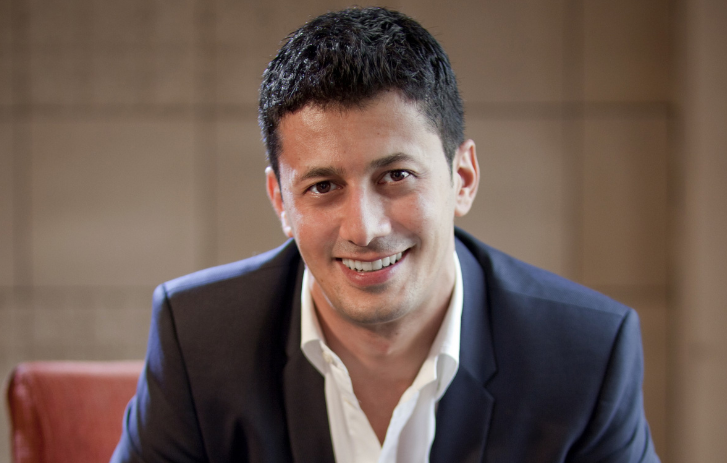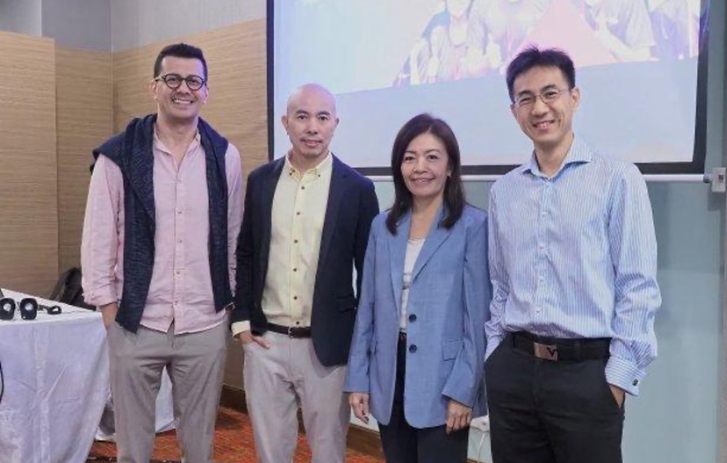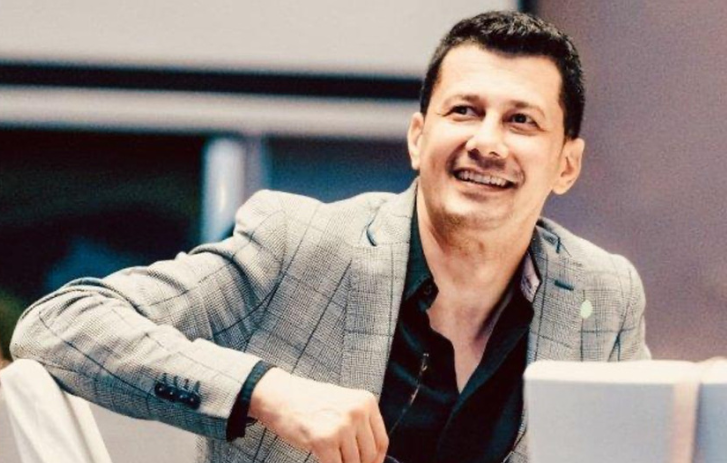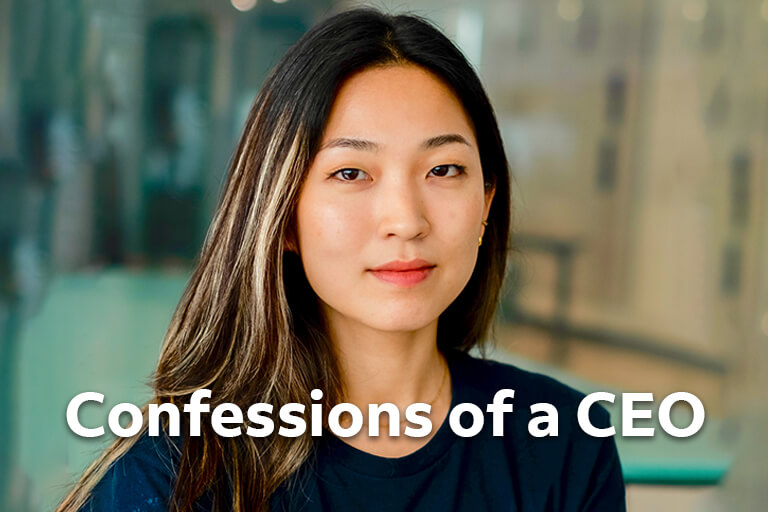How Reza Behnam Provides Tech Startups With Strategies For Success
Reza Behnam is the CEO of Digital Direction, a Singapore-based innovation studio and business incubator that launches and scales startups and supports third-party tech startups with mentorship, coaching, and growth strategies. He shares his own startup journey and what makes his CEO leadership style unique.
- Digital Direction is an innovation studio, business incubation and investment practice that helps tech entrepreneurs launch startups and bring new products to market.
- Specializing in supporting Singapore-based B2B startups, Digital Direction is part of a wave of startup enablement companies that provide a launchpad for innovative ideas.
- Reza recently launched Fractional First, a platform designed to match experienced operating leaders and experts with organizations through flexible options such as fractional, interim, part-time and full-time models.
- CEO Reza Behnam explores what it takes to win as a tech startup in today’s market, and how he started out as a venture builder for up-and-coming techpreneurs.
- 1. What drew you to tech entrepreneurship?
- 2. How can startups balance innovation with the need for sustainable growth in a competitive tech landscape?
- 3. How would you describe your leadership style and philosophy?
- 4. What does conscious leadership look like to you?
- 5. What do you do to build self-confidence as a CEO and leader?
- 6. What is one belief you hold that other business leaders might disagree with you on?
- 7. What is your greatest business failure that you treasure the most?
- 8. What have you learned most recently about being a CEO and leader?
All business owners need help getting their ideas off the ground so they can launch successfully. Fortunately, support networks exist to ensure that new ventures get off to a strong start.
Some businesses engage the services of venture builders, who provide funding, connections and advice for emerging startups. Business coach and entrepreneur Reza Behnam has been offering a launchpad for tech startups since 2009, under the banner of his own business enablement company, Digital Direction.
The CEO has also recently co-founded two other startups, Fractional First and a yet-to-be named company, both focusing on leadership development and business transformation. We spoke to Reza after he joined us as a judge for our annual student entrepreneurship competition, JA/FedEx International Trade Challenge, about his journey and the tech brands he’s mentored along the way.
Some businesses engage the services of venture builders, who provide funding, connections and advice for emerging startups. Business coach and entrepreneur Reza Behnam has been offering a launchpad for tech startups since 2009, under the banner of his own business enablement company, Digital Direction.
The CEO has also recently co-founded two other startups, Fractional First and a yet-to-be named company, both focusing on leadership development and business transformation. We spoke to Reza after he joined us as a judge for our annual student entrepreneurship competition, JA/FedEx International Trade Challenge, about his journey and the tech brands he’s mentored along the way.

You’re the founder and CEO of Digital Direction, a business incubator focusing on tech startups. What drew you to tech entrepreneurship?
Reza Behnam: I am a natural problem-solver and somewhat of a geek, so I’m drawn to solving challenges. When I was younger, I had the opportunity and privilege of leading the Southeast Asia region for one of the largest consumer tech companies at the time. The company was US-headquartered, so I didn’t have many resources in the region. This challenge became a learning opportunity, as I learned how to be an ‘intrapreneur’ in the confines of a larger organization.
Once I tasted this freedom and creativity through my ‘intrapreneurship’ journey, returning to the typical 9-5 corporate job seemed unnatural. Very few corporate environments could match the challenge and freedom I yearned for, so I transitioned into being a venture investor first, then a full-fledged entrepreneur-operator.
How can startups balance innovation with the need for sustainable growth in a competitive tech landscape?
Startups have limited resources. They are forced to focus on a particular customer pain point for which there are few existing solutions. Typically, the customer will have resorted to time-consuming or expensive workarounds (or “hacks”).
These pain points often seem very narrow and specific, but they offer an opportunity to enter a competitive space with a trojan-horse strategy, carving out a deep focus area for the startup.
Therefore, startups, by definition, start with innovation. They typically innovate through a combination of customer experience, product, business model, and efficiency. Generally, they focus on scaling their offering once they find their product-market fit. From the outset and throughout their scaling journey, they experiment with various levers and value propositions to evolve their offerings.
Throughout every growth journey, innovation remains the bread and butter of a startup. The level and intensity of innovation may start to wane as it becomes more established, but in most cases, it does not.
Take Apple, Google, Meta, Netflix, and Amazon, for example. They leverage their strengths (primarily distribution, reach, and brand recognition) into evolving categories of products and continue to innovate at a fast pace. Sustaining your R&D based on your established product line allows you to innovate and stay ahead. A non-innovating technology company is a dead company.
These pain points often seem very narrow and specific, but they offer an opportunity to enter a competitive space with a trojan-horse strategy, carving out a deep focus area for the startup.
Therefore, startups, by definition, start with innovation. They typically innovate through a combination of customer experience, product, business model, and efficiency. Generally, they focus on scaling their offering once they find their product-market fit. From the outset and throughout their scaling journey, they experiment with various levers and value propositions to evolve their offerings.
Throughout every growth journey, innovation remains the bread and butter of a startup. The level and intensity of innovation may start to wane as it becomes more established, but in most cases, it does not.
Take Apple, Google, Meta, Netflix, and Amazon, for example. They leverage their strengths (primarily distribution, reach, and brand recognition) into evolving categories of products and continue to innovate at a fast pace. Sustaining your R&D based on your established product line allows you to innovate and stay ahead. A non-innovating technology company is a dead company.
How would you describe your leadership style and philosophy?
My leadership style has evolved over the years. I’ve learned to be a more grounded leader and have become better at forging deeper, genuine connections with my colleagues and team members, placing them in positions where they can shine.
In my younger days, I defined a good leader as an intelligent problem-solver with good communication skills and the ability to navigate politics. While those skills are essential, I’ve learned to appreciate the ability to inspire people through active listening, to model through behavior and to orchestrate healthy team dynamics.
In my younger days, I defined a good leader as an intelligent problem-solver with good communication skills and the ability to navigate politics. While those skills are essential, I’ve learned to appreciate the ability to inspire people through active listening, to model through behavior and to orchestrate healthy team dynamics.
What does conscious leadership look like to you?
Conscious leadership is about being aware of our actions as leaders and their ripple effects. It’s about creating a bit of distance between the stimulus and our actions. It’s about distinguishing reactivity (habitual behaviors that may or may not serve us) from informed, intentional, clear decisions. Conscious leadership is about playing the infinite (win-win) game, instead of the finite (I win, you lose) game.
It can be as simple as allowing your peers, colleagues or team members to feel heard by intently listening and providing a supportive space to explore their ideas without interjecting or feeling the need to respond.
It’s also about being mindful of the implications of a decision beyond optimizing the company's P&L - the impact on the employees, society and the environment, for example. When we’re mindful, we can make better, informed decisions in service of our organizations, community and planet.

In a particular case, a narrow focus on the P&L may be needed without complicating the decision with other considerations. In other cases, we may determine that we can optimize the P&L while increasing the positive impact on society. So, being mindful doesn’t take away your options. It allows you to assess your choices against a broader set of considerations and reconsider what might be a limiting, knee-jerk, or habitual reaction.
What do you do to build self-confidence as a CEO and leader?
By seeking a quiet place, ideally in nature, to experience and marvel at the phenomenon of “being”. This is not a cognitive “thinking” exercise but an opportunity to allow myself to reset, by feeling one with nature and at ease with doing nothing.
The regenerative power within each of us is the most potent, most sustainable renewable power. It is authentic and wise, not reliant on external sources of validation or fads and trends. I tap into the wisdom of nature and contemplate. This is my best leadership coach.
What is one belief you hold that other business leaders might disagree with you on?
The belief and conviction that the best decisions are those that seem smart and feel right, emotionally and energetically. There’s more intelligence in our body than is produced by our thinking, brain or intellect.
From a young age, we are trained to be analytically sharp and logically sound. While these traits are essential, we have a lot of intelligence and information that do not result from relying solely on our analytical power. Many scholars and academics are increasingly exploring the connection between the body, mind, and soul, and we’re just scratching the surface regarding our understanding of this connection.
I’ll go a step further and say that science, as powerful and useful as it is, has some limitations as every theory, even the most fundamental, is based on a specific set of assumptions. As such, the original assumption never gets verified. If you assume, for example, that the world is only made out of material objects, then logically, you can derive many valuable theories. But then you get stuck trying to explain quantum phenomena or even things we take as granted like the seemingly paradoxical characteristics of light, as demonstrated by the double-slit experiment.

Our tendency to confine everything within the containers of (today’s) science is quite limiting, as many phenomena and experiences don’t have a scientific explanation yet. Interestingly, most learned academics and scholars would admit to the limitations of science, our cognitive mind and our five senses in explaining phenomena.
If you disagree, try explaining the pure joy of hugging your two-year-old child scientifically and decide if that logical explanation comes close to what you experience in reality!
If you disagree, try explaining the pure joy of hugging your two-year-old child scientifically and decide if that logical explanation comes close to what you experience in reality!
What is your greatest business failure that you treasure the most?
It’s hard to name my greatest business failure, as I’ve had quite a few. However, the ones I learned most from are the ones that I could have prevented. I cherish the lessons I’ve learnt from preventable mistakes as I had agency in those situations.
One such mistake is engaging in business with friends or family without having full clarity on expectations, leadership style, process or goals. I’ve been in situations where my friendships have been overtaxed as a result of lack of understanding or empathy, or simply as a result of differences in style. I’ve learnt to be incredibly cautious, patient and understanding in these situations as there’s a lot more at risk than just the business.
What have you learned most recently about being a CEO and leader?
I’ve started to more profoundly appreciate the difference between “smarts” and “wisdom”. Smarts is the ability to cognitively and logically connect the dots and draw conclusions. Wisdom is about understanding that you don’t have to be the smartest person in the room or even have the smartest person at the table to accomplish something worthy.
Smarts is in the domain of knowledge. Wisdom is in the domain of experience, awareness and integration.
***
Our Confessions of a CEO column quizzes Asia Pacific leaders on business insights that aspiring entrepreneurs can learn from. To discover more entrepreneurship stories like Reza’s, subscribe to our monthly newsletter below, and stay tuned for the next edition.


















 The Latest
The Latest